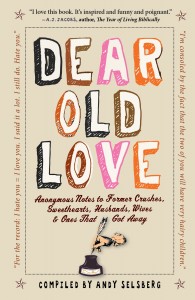“That’s it?” I want to crumple up my 1099 forms in disgust every January when I see, glaring at me in black and white, how little I get paid for pouring my heart and soul onto the page (and increasingly the computer screen) as a freelance writer.
“This year it’s actually good that you didn’t make much money,” says my husband, Zak, looking at me over a half-full bottle of beer. “In fact, go back to last year and make even less, and then make a whole lot more this year.” This is his version of financial planning. Apparently we neglected to make estimated tax payments, so the less money I make the less we’ll have to pay up in April.
Oh the unexpected joys of being underemployed.
It wasn’t always like this.
When we first started dating, Zak was the underemployed one. While I was bringing in the relatively big-ish bucks as a marketing executive, he was a struggling screenwriter. He always made enough to pay his own way, but barely. If we wanted to go out to a restaurant with real silverware and cloth napkins, it was definitely on me.
This went on for years-six to be exact, but who’s counting? I wasn’t making that much money but compared to him I was rolling in it, and if there were any luxuries I wanted (like Charmin toilet paper and something besides Top Ramen for dinner) we both understood that I would have to foot the bill.
Then, in a flash of Hollywood’s magic wand, Zak’s income gained an extra digit. My left hand gained a great big diamond and we started planning a ridiculously expensive wedding, which I decided to devote the next several months of my life to planning. Who needs a day job when your husband-to-be makes enough to make your paycheck look like a pittance?
And so it went for a few years. Sure, I did some writing, but mostly I enjoyed myself. It’s amazing all of the fun things you can find to fill your days when you don’t have that pesky burden of the nine to five lifestyle.
For better or for worse, it didn’t last.
Zak’s Hollywood trajectory plummeted almost as suddenly as it rose, and before I knew it I was back working fulltime as the main breadwinner, and Zak was the one who was underemployed and mostly stayed home with our son. For the last ten years we’ve flip-flopped, both taking turns with making the primary income and being the on-call parent.
I knew this was unusual, but didn’t quite realize how un-mainstream it was until the Pew Center came out with a study recently, that found wives were the dominant income-provider in one of five marriages, and more notably, that this was big news. The New York Times ran five freaking stories about this trend.
A trend which is, frankly, no big surprise: Men are still the major contributors of household income — with 78 percent making at least as much or more than their wives — but the percentage of women whose income has outpaced their husband’s has jumped from just 4 percent in 1970 to 22 percent now.
That’s what they call coming a long way, baby?
I asked my friends to see if many of them made more money than their husbands do. The vast majority said something to the effect of, “No, but I’d sure love to-and believe me he’d be thrilled about it.”
No kidding.
Among those who did make more money than their husbands, it seemed to be something they took in stride. For the most part, their respective career paths and earning potential were predictable at the time they got married. Although my friend Inez said she was surprised-and angry-to find out she made less than her husband when they got married, as she was better educated and clearly had a job with more responsibility.
“Honestly, it fired me up to ask for-and eventually receive-a long overdue promotion. My husband was cheering me on the entire time.”
As Allie said, “Having a good salary was one of my main goals coming out of college. I was never counting on marrying someone rich. I wasn’t really counting on getting married in the first place.”
“It has definitely been something we have had to work on together and it has often been with resentment and bad feelings,” said Carla. “If you had asked me about making more money five, ten or 15 years ago, my responses would have been different. It’s something we continue to work at and even change roles sometimes. It’s all good and part of the process. Money is hard, but not what drives the love, and certainly not the marriage.”
I’ll be thinking of that while I travel back to last year in order to work less. And while I’m there, maybe I’ll pick up some shares of Apple. Now that’s sound financial planning.




